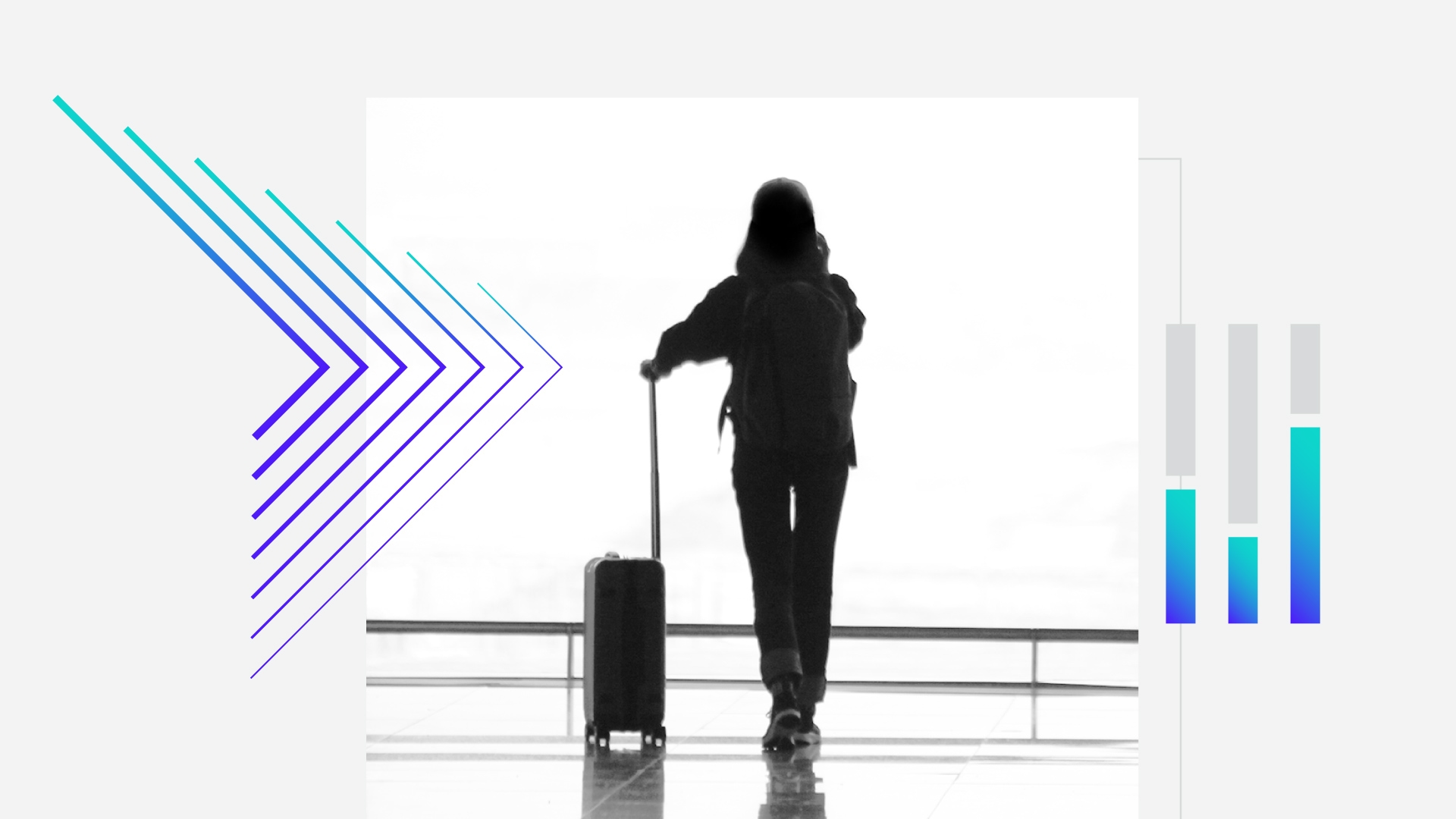From Bad Hygiene to Crying Babies: Consumers Rank the Most Annoying Air Passenger Behaviors

Key Takeaways
No matter what you do on a plane, you’re probably annoying another passenger. All but one of the 12 airline behaviors included in our survey were deemed “bothersome” by at least half of U.S. adults.
Cross your fingers for a Gen Z seatmate, as they’re less bothered by most behaviors. But if you want to switch seats, find a Gen Xer.
If you’re willing to shell out more to avoid a crying baby, you’re not alone: 61% of adults say they would pay more to sit in a child-free section on a flight.
Data Downloads
For a daily briefing on the most important data, charts and insights from Morning Consult, sign up for Our Best Intel.
It’s probably happened to most of us at one time or another. You file your way onto a crowded airplane, take your seat next to the window, and settle in with a copy of The Economist (OK, fine: People magazine) for a nice long flight. Then suddenly your seatmate arrives, removes his shoes and stretches his pungent feet right into your already-cramped leg space, seemingly unaware of your presence. Your nice long flight no longer seems so nice, and somehow seems longer already.
While high ticket prices and delayed or canceled flights tend to attract the most media attention, passengers’ bad behavior has also been a cause for headaches. And when the unwritten rules of airline etiquette are broached, it can lead to conflict. Air rage incidents have remained high since the pandemic, and nearly 1 in 5 U.S. adults now say that their concern about others’ behavior while traveling may deter them from taking a trip.
As the busy holiday travel season approaches, Morning Consult surveyed consumers to understand the most aggravating airline passenger behaviors. Airlines can use this data to prepare for and mitigate potential points of tension. Holiday travel is stressful enough for passengers, so airlines’ efforts to head off issues could translate to a more pleasant experience for everyone.
Passengers’ encroaching on others’ personal space is the top source of irritation
If there’s one thing that’s clear from the data, it’s this: Travelers are annoyed by a lot of things. Among the 12 potentially annoying airline passenger behaviors surveyed, 11 were categorized as “bothersome” in some way by at least half of U.S. adults, and seven were described as “very bothersome” by at least one-third of consumers.
Perhaps unsurprisingly in a post-pandemic world, issues of personal space and hygiene are most likely to irk flyers. A neighbor taking up one’s space — for example, commandeering an armrest or extending their legs into another passenger’s area — is considered the most annoying behavior, with 76% of U.S. adults saying this is at least somewhat bothersome. A close second and third, respectively, are passengers displaying unhygienic behaviors, like personal grooming or removing shoes, and showing clear signs of illness, like excessive coughing or sneezing. The latter is notable given the fierce debate over airline-imposed mask mandates to keep disease from spreading. Plus, previous Morning Consult research shows that feeling as though one can stay healthy on a plane is a strong driver of trust in airlines.
Personal Space Violations and Lack of Hygiene Are Most Bothersome to Airline Passengers
Other, more procedure-based behaviors — trying to exit the plane upon arrival before those seated in the rows ahead, or blocking the aisles while others are boarding — are slightly less likely to ruffle passengers’ feathers. But even though such behaviors are less grating, they’re still bothersome to a majority of people.
It’s true that airlines can’t completely control passenger behavior, but they can provide guidance to help mitigate most infractions. For example, armrests can be a point of contention — so perhaps an addendum to the standard safety protocols suggesting that the poor soul in the middle seat should at least get to use both armrests would go far. A simple reminder of some of the key aspects of etiquette may stave off potential conflicts and create a smoother experience for all involved.
Gen Z travelers remain (comparatively) unbothered
Perhaps it’s because they haven’t spent as much time on planes as older generations. Perhaps it’s because their relatively limited life experience hasn’t left them bitter and cranky yet. Whatever the reason, Gen Z adults are, relative to older generations, far less bothered by almost all of the behaviors in question. In fact, for most behaviors, the older the generation, the more likely they are to be annoyed by a particular passenger behavior. In other words, if you’re guilty of any of these infractions, you’d better hope your seatmate isn’t a baby boomer.
One behavior stands out as bucking the trend. If you’re hoping to switch seats — perhaps to avoid a stern-faced baby boomer, for example — look for a Gen Xer: Only 49% said they find such requests annoying, compared with 53% of Gen Zers and 54% of both millennials and baby boomers.
Annoyance With Other Passengers’ Behaviors Appears to Grow With Age
The biggest generational gap relates to visible intoxication. Among the perpetually annoyed baby boomers, 83% said they find this maddening, 28 percentage points higher than the share of Gen Zers who feel similarly. Exhibiting signs of sickness is also highly divisive. Notably, both of these behaviors were cited as contributing to a post-pandemic spike in air rage incidents, so it’s best for airlines to err on the side of sensitivity when addressing them.
Attitudes toward babies and kids are complicated
The words “crying baby on a plane” can strike fear into the hearts of parents and nonparents alike, but it turns out passengers’ feelings toward children on flights are complicated. At first glance, general annoyance levels seem comparatively low: While 59% of U.S. adults say that misbehaving children or crying babies are bothersome, that ranks 10th on our list of 12 trying behaviors. However, when respondents were asked to choose the top three most bothersome behaviors from the list, naughty children moved several places higher: 27% of U.S. adults chose youngsters as a top three source of annoyance, putting them fifth overall, above behaviors like listening to audio without headphones and eating smelly foods, which were initially rated as bothersome by more people.
Perhaps people want to be forgiving of children, but when put into perspective alongside other annoyances, it’s hard to ignore how frustrating a misbehaving kid on a plane can be. That said, responses to news coverage of child-related incidents (including the infamous “So’s the baby!” video) often show some room for nuance: There may be nothing a parent can do to soothe an infant in discomfort or calm a squirmy toddler, but most passengers agree that they will give the parents some grace so long as it seems like they’re trying to manage the situation.
Compared With Other Behaviors, Misbehaving Kids and Loud Babies Are More Annoying
That said, some airlines have floated the idea of offering a baby-free seating section for nonparents (or for parents traveling without their children and enjoying a rare moment of calm). Perhaps unsurprisingly given travelers’ ranking of babies and children among the most annoying in-flight issues, there’s a market for this option.
When asked if they would be interested in a child-free section on a plane, 57% of U.S. adults said yes. And interest ticked up after respondents were reminded of poor airline passenger etiquette: When asked the same question a second time, after answering other questions about bothersome behaviors, the share interested in a baby-free seating section rose slightly to 59%. While this is technically within the survey’s margin of error, the change was more notable when respondents were asked about baby-free flights: Initially, 50% said they were interested, but when asked a second time after answering other questions, the share rose to 55%. Notably, a majority of respondents said they’d still be interested in these options even if they had to pay a premium.
For what it’s worth, there may not be much anyone can do about some of these bad behaviors. But going into the busy holiday season, airlines must be aware of potential points of conflict between passengers. Perhaps evoking the spirit of the holiday season and asking travelers to give everyone the grace they’d extend to a stressed-out parent of a screaming baby on a plane might be a good place to start.
Lindsey Roeschke is an analyst whose work focuses on behavior and expectations of consumers in the travel & hospitality and food & beverage categories, particularly through a generational and cultural lens. Prior to joining Morning Consult, she served as a director of consumer and culture analysis at Gartner. In addition to her research and advisory background, Lindsey has more than a decade of experience in the advertising world. She has lived and worked in seven cities across four continents.
Related content

To Build Consumer Trust, Airlines Must Get Back to the Basics

Forget First-Class Seats and Penthouse Suites — Luxury Travel Is About Customer Service
